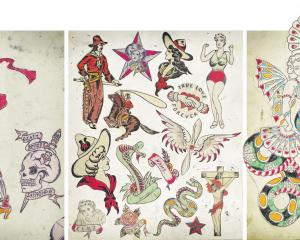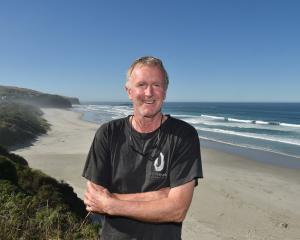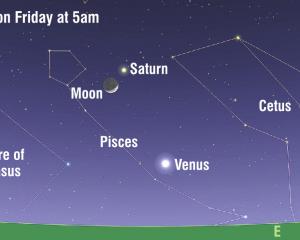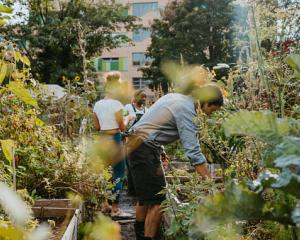World Peace Day is a week away. But how far away is world peace? Bruce Munro talks to National Centre for Peace and Conflict Studies' Professor Richard Jackson.
It is the obvious question ahead of the United Nations-appointed day dedicated to the absence of war and violence.
For decades, beauty pageant contestants have been calling for world peace, so why don't we have it?
The answer, Prof Richard Jackson says, is simple but more than skin-deep.
''We don't have world peace, No1, because there are a lot of people and groups invested in war and militarism. It forms a big part of many economies, and there are a lot of political leaders who make a lot of capital out of that,'' the acting director of the University of Otago's National Centre for Peace and Conflict Studies says.
''Secondly, we don't have it because a lot of people are under the illusion, the myth, that it is impossible and that human nature is inherently violent. When people believe something as strong as that they don't work to make it any different.''
Despite that, a peaceful world is an important goal, says Prof Jackson, who tasted guerrilla warfare at first hand as a teenager in Zambia in the early 1980s and is now a terrorism specialist.
''Who wants to live in a world with war, with refugees, with children going hungry because money is being spent on military weapons, where people are killing each other?
''So it is really important that we work for peace. A lot of people are being harmed because of war, and a lot of potential is being unrealised. People cannot live dignified and creative lives in a world at war.''
The idea of world peace was once strong, Prof Jackson says.
World War 1 gave great impetus to the push to end conflict.
It was supposed to be the war to end all wars, and gave rise to many popular international peace organisations.
But World War 2 shattered those hopes and even belief in the possibility of peace.
''In some ways, the figure of Hitler and Nazism came to represent the idea that war may always be necessary for these types of utterly evil people.
''And once we accepted that belief, we pretty well gave up on the idea of world peace.''
But Prof Jackson does not accept the argument that peace is a worthy but unrealistic aspiration.
''Human beings have the capacity to change their world.''
If abolitionists or suffragettes had listened to those who said their goals were unrealistic, they might not have struggled for important social change.
''Extraordinary changes have happened. Apartheid collapsed, segregation was abolished in the United States, the world is united in saying slavery is wrong, gender equality is progressing slowly. It has happened because people believed it was possible.''
Prof Jackson believes war is losing its glamour and that its costly, terrible nature is being exposed.
''I think that globally there is a growing hunger for more peaceful, more just society.
''We can see it across literally dozens of non-violent movements demanding change.''
The growing prominence of events such as Dunedin's World Peace Day 2015 is a sign of the resurgent appetite for peace, he says.
New Zealand has given moral leadership and led by example on peace issues such as nuclear disarmament.
But its potential to act as a global force for peace is not being fully realised, he says.
''Sadly the position of this and previous governments has often been to follow America and Britain rather than take an independent and more peaceful foreign policy approach.''
Peace, Prof Jackson concludes, starts in people's minds.
''It's not external to us, like an earthquake or the weather. Peace happens because human beings make choices to behave more peacefully, to introduce processes and structures that will enable peace to occur.
''Peace will never come until we make it happen.''
Festival for World Peace Day
A multicultural music event at Forsyth Barr Stadium, in Dunedin, will mark World Peace Day next weekend.
The World Peace Day 2015 festival will be a first for the city, the event's creative director Kira Hundleby says.
''It's a wonderful opportunity for everyone to come together and celebrate multicultural diversity under the banner of peace,'' Miss Hundleby says.
Next Sunday's day-long event will have a ''Womad-inspired programme of live music'' as well as dance, children's activities, visual art, poetry, speakers, workshops, and food stalls.
Performers include King Leo, West African musician and drummer Koffie Fugah, Matt Langley, the Tongan Community Gospel Choir, the Otago Southland Chinese Association lion dance team, Ungu Capoeira Dunedin, members of the Irish Beat Dance School and Natyaloka Classical Indian Dance.
Olly Ohlsen and Wyeth Chalmers will MC the event, which has been eight months in the planning.
Miss Hundleby said the event was a ''step towards remembering our common humanity and learning to respect and enjoy our natural diversity''.
''Peace is all about relationship. It's about bringing down barriers and trying to get along.''
The festival's matua (mentor) is David Ellison, who is upoko (chief) of Karitane-based Kati Huirapa Runaka ki Puketeraki.
Mr Ellison served with the New Zealand Army in Malaya and was a member of the territorials for several years.
He said he was involved with the World Peace Day 2015 event because he believed in its aims.
''All that soldiers want is peace,'' Mr Ellison said.
''We trained for war, but we are praying for peace.''
Be there
• World Peace Day 2015, Forsyth Barr Stadium, Sunday, September 20, 11am to 9pm. Entry by donation.












